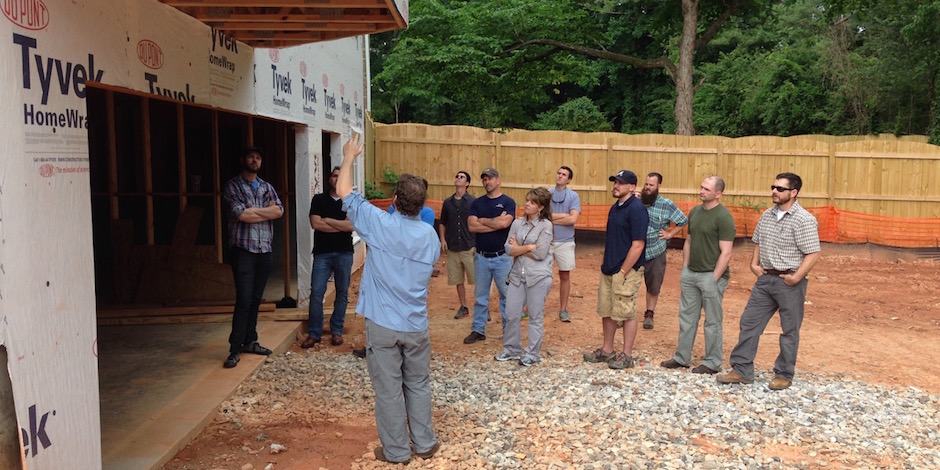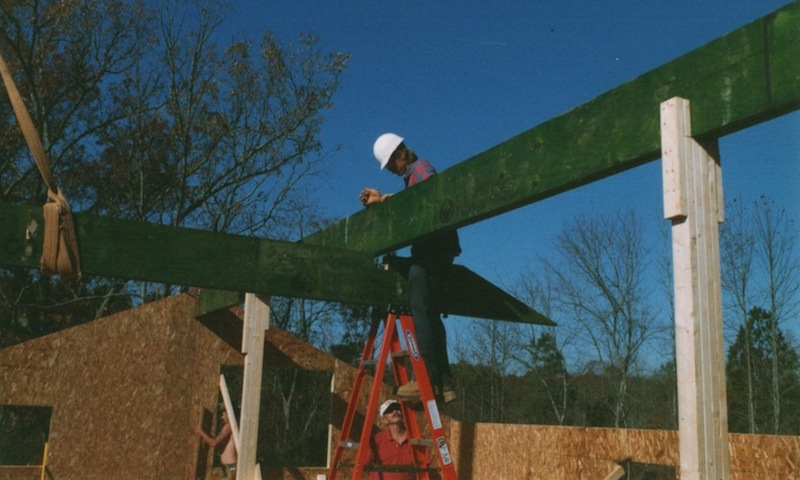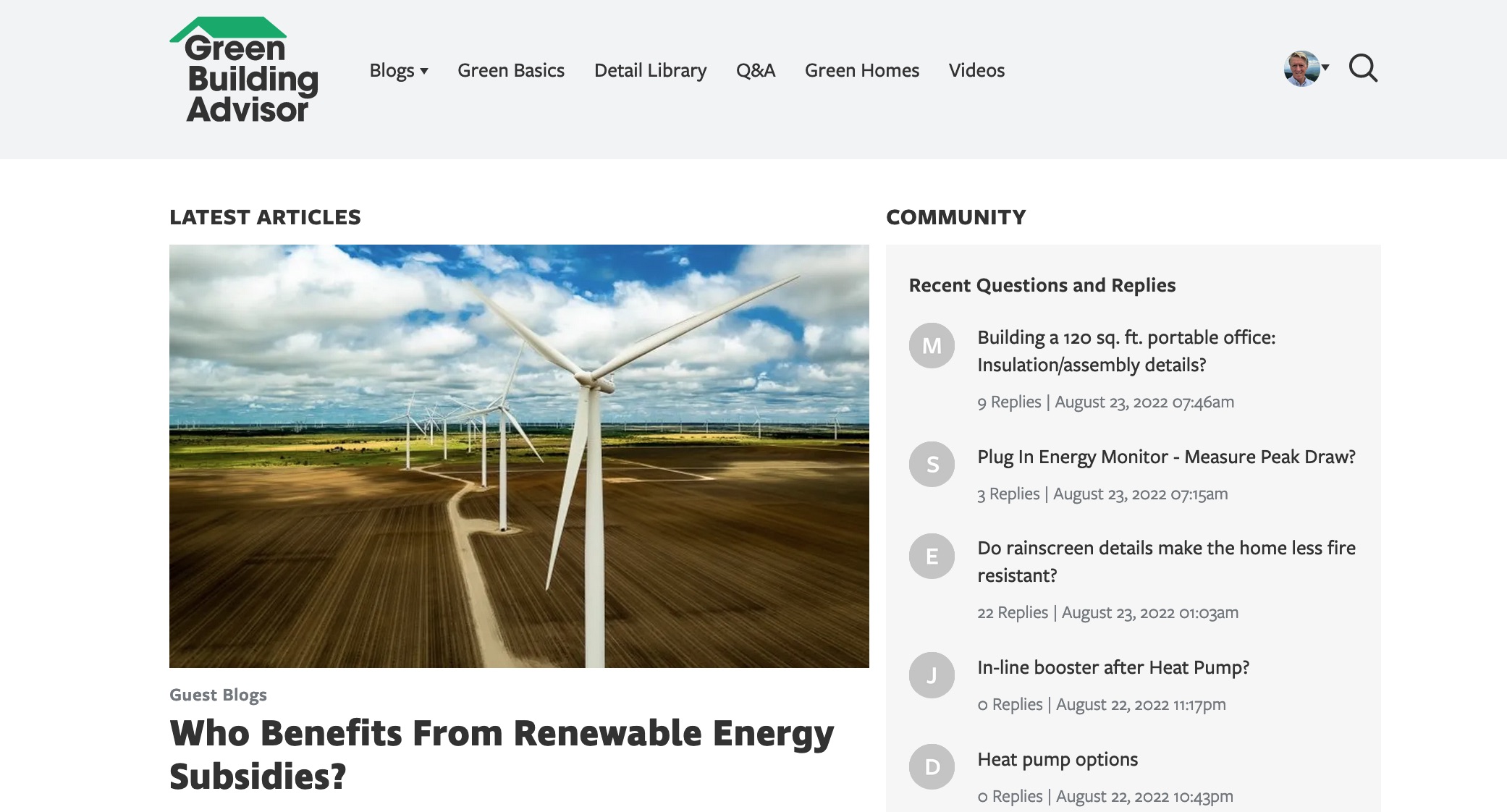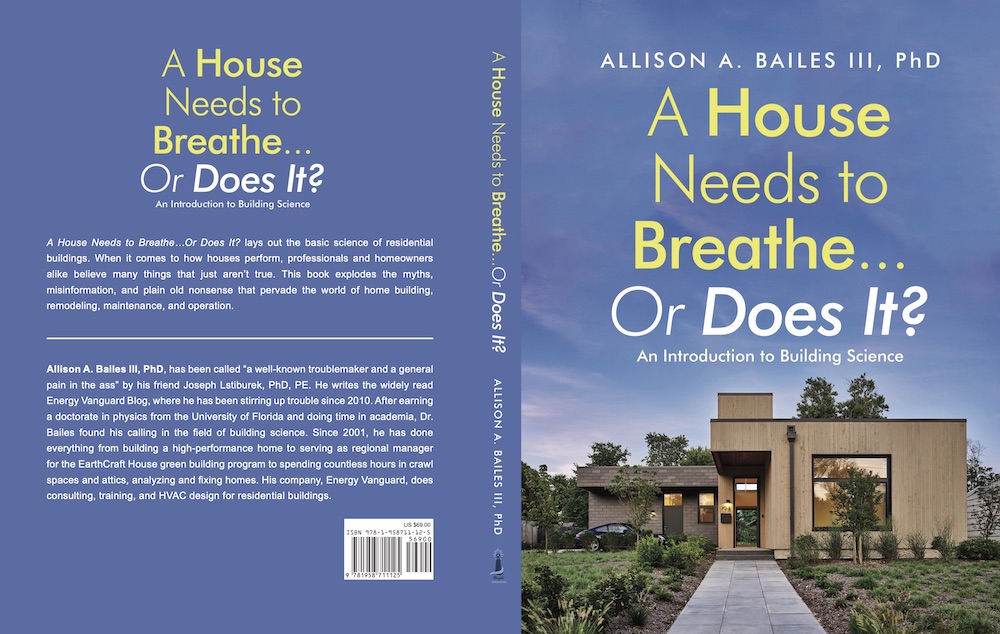Getting a Solid Understanding of Building Science

You may have found yourself needing to understand building science for one of a thousand different reasons. Perhaps you’ve bought a house and want to make sure it’s comfortable, healthy, and efficient. Maybe you’re an architect with a new client who has asked you to design a house that can get certified as a Passive House. It could be that you’re an HVAC technician who’s come to realize that there’s a lot more to heating and cooling than just the heat pump, air conditioner, furnace, or boiler. Or maybe someone in your family has a health problem caused or made worse by your home.
Whatever the reason that brought you to the doorstep of building science, though, you have a lot of options for getting a solid understanding of this exciting field. I’ve described several below. Be sure to read all the way to the bottom, too, because I’ve got some exciting news there.
Jump in
This is my preferred formula for learning something. It’s also referred to as the getting-ahead-of-your-skis method. Back in 2001, I decided to build a house, acting as the general contractor myself. I’d never built anything bigger than a bookcase before then, but I gave myself quite an education in construction and building science. And that’s what launched me into this career.

I didn’t stop there. When I got out of academia in 2004, I started a business. Initially it was energy modeling and load calculations, and then it morphed into home performance assessments and contracting. I didn’t know much at the beginning, but I sure did learn a lot.
You may not want to take the risks I took, though. Instead, you can start with smaller projects, like retrofitting your hot water system or installing a bath fan. But the jumping-in method isn’t sufficient by itself. You’ve got to combine it with some of the things below to solidify your building science knowledge.
Go to conferences
I relished going to my first home performance conference in 2005. I’d been doing assessments and contracting for a year and had so many questions. The sessions were wonderful, but I also got to meet people who had been doing this stuff a long time.

But when you go to a conference, go with a plan. Become a conference commando if you want to get the most out of it. And if you’re wondering what conferences to attend, here’s a list I put together a while back. It’s still fairly accurate, although some of the names have changed.
Take a class
Another good way to learn building science is to take a class. The Building Performance Institute (BPI) has good classes on home performance that lead to certifications. HeatSpring offers a lot of online classes. The folks at Construction Instruction offer some of the most solid building science classes you can find. And then there’s Joe Lstiburek. He regularly offers a two-day Building Science Fundamentals class as well as others.
We’ve offered classes in the past and are planning to do so again in the next year or so. That’s been on hold because of the pandemic and my being consumed by writing a book (see below).
Learn online
The Interwebs are a nightmare in some ways, but they sure make learning new things a lot easier than in the old days. You can find exabytes of information right at your fingertips. Of course, there’s the Energy Vanguard Blog. (You’re soaking in it!) And Building Science Corporation, JLC Online, the Building America Solutions Center, and much more. One place I’ve spent a lot of time—and learned a lot—is Green Building Advisor. They have articles, a forum, and a nice collection of building details for GBA Prime members. Pay special attention to Martin Holladay’s articles.

Read books
Of course, I couldn’t write this article without mentioning books. Here are a few that I’ve found really helpful
- Buildings Don’t Lie by Henry Gifford
- Water in Buildings by William Rose
- Builder’s Guide to… for various climate zones, by Joseph Lstiburek, PhD, PE
- Residential Ventilation by Paul Raymer
- Manual J: Residential Load Calculation by Hank Rutkowski
- Residential Energy by John Krigger
And there’s a new one that just came out that I’m sure has a lot of good stuff in it:
- Pretty Good House by Dan Kolbert, Emily Mottram, Michael Maines, and Chris Briley
I’ll be reading it and posting a review here before long.
Read my book!
And now you have a chance to add another building science book to your shelf: mine! The files are with the printer now, and we should have it in October. You can read about it on our book page, see the full table of contents, and check out a couple of sample pages.

And you now can pre-order the book, too! Use the discount code evblog5 to get $5 off when you pre-order. Enter “evblog5” (without the quotation marks) during checkout before the end of this month (Aug. 2022) to get the deal.
What are your favorite sources of building science information?
Allison A. Bailes III, PhD is a speaker, writer, building science consultant, and the founder of Energy Vanguard in Decatur, Georgia. He has a doctorate in physics and writes the Energy Vanguard Blog. He also has a book on building science coming out in the fall of 2022. You can follow him on Twitter at @EnergyVanguard.
Related Articles
12 Resources for Learning & Teaching Building Science
How to Talk Like a Building Scientist
Comments are moderated. Your comment will not appear below until approved.
This Post Has One Comment
Comments are closed.

How long should it take a properly sized central air system to cool a house? Seeing all kinds of claims. Their has to be an optimal efficiency range. Wondering the real world performance that will give you pause to question your tonnages appropriateness. Some site claim a degree an hour others a degree in 18minutes. I lean towards 18. So I’m not racking electric like crazy. I bought a new house 3400sqft. They have a 3ton unit on it. It only drops 2 degrees in 4 to 5 hours when thermostat is set to 73 and it was 80outside. As the night cools it continues to preform poorly. I think it doesn’t have the btu’s for thee house load. They produced a manual j. But I found items I have issue with but am not a professional to know how to interpret all the data. An article on this subject would be great